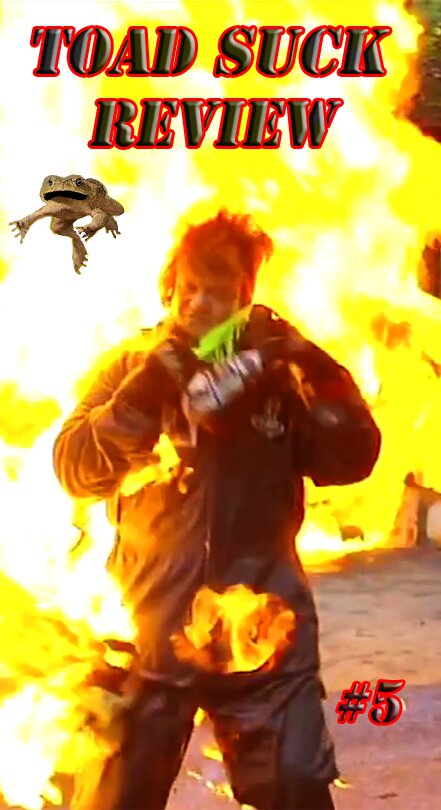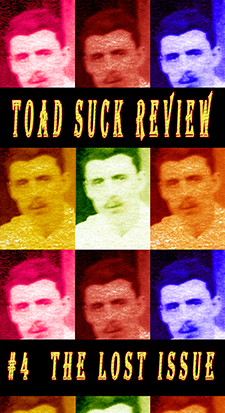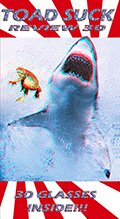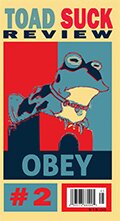I used to be a teen, just like everybody else over a certain age (specifically nineteen), and I admit that I sometimes got bored because I hadn’t yet filled my head with great poetry from all over the world and otherwise developed the inner resources which I enjoy today as I sit here and compose this memoir.
In fact, I used to get bored enough to drive out to the local airport, where I’d equip myself with a Big Gulp root beer and a large cheese dog with extra cheese and stare at people in the Departure Lounge. One day, I saw a very famous New York City-type writer huddling all alone in the area where the regular rabble sat.
There was no ready explanation for such a star’s presence anywhere near our hopelessly benighted corner of the continent. It’s not as though our cow-shitty airstrip was a hub for Delta Airlines or anything. I was surprised to see no entourage fawning and fussing over this National Book Award winner. I was also curious as to why he wasn’t scarfing the camembert hors d’oeuvres and champagne in the newly-built VIP Lounge, which would be otherwise deserted but for the members of the local Uncompahgre tribe, who’d recently gotten rich building casinos on their reservation.
I noticed that he was trembling and sweating, obviously an aviophobe waiting to be shot into the sky by unimaginable forces. He had his much-televised nose buried in a book, and the book pressed flat into his lap. The poor famous guy was using his reading material as an excuse to curl up into the fetal position. Here among us steerage types, us unwashed ignoramuses, this member of the East Coast Liberal Intelligentsia thought he would not be recognized and pestered for an autograph as he nursed his primordial qualm.
So I scooted next to the unhappy genius and attempted to deliver him succor—you know, the usual reassurances: jet plane crashes are preferable to just about any other sort of crash, as you are never left an invalid and a burden to your loved ones. Sure, your hands get ripped off at the wrists because you’re clenching your armrests so tightly in sheer horror. But before you’ve had a chance to feel the tendons tear and the joints dislocate, the flames have already screamed straight through your eye sockets and turned your brain into a crispy booger.
As I prepared to murmur such soothing notions into his ear, I felt like the wretch in Attic Nights approaching the lion. It’s difficult to explain where I came up with the effrontery to essay such a thing, this bold attempt to leap class boundaries. I suppose the general headlong excitement of my surroundings at that moment must have been contagious: the sense of simply unbuttoning oneself, just letting go, strapping oneself into a tube full of gigantic amounts of the most flammable stuff in existence and flinging out one’s bosom and “throwing caution to the wind,” as the ladies say in historical novels.
Because I, even I, even someone like me, hailing as I did from this state where the elevation of the settlements exceeds the population by at least three digits; a part of the world infested with white trash who couldn’t even claim the distinction of being former slave owners; a mintless urinal of a birthplace located on a wadded-up bit of toilet tissue depending from a smutched hemorrhoid on the anus mundi, where the only parties to go to were the wrong ones and where your chance of being invited to, or even crashing, the right one, was less than that of a fart offending the nostrils in a colostomy ward; yes, I, the scatological rustic, with my hard R’s and my obscure name that couldn’t reek more ludicrously of peaked-out bloodlines and the exhausted and trite ethnicity which my very frame and coloration so galumphingly exemplified (this was the period of literary history before the Celtic Fringe became a hot item); I, me, cursed at birth with the red hair, white skin and blue eyes of Thomas Jefferson and Paul Bunyan and other such scabrous cancers on the continent; I, that is to say, me, teeny-bop Tommy, the bumpkin Br-r-r-r-radley-boy, the product and embodiment of a rainless region of inbred Neanderthals, hayseeds, the very notion of whose ever, even by accident, getting a literary agent put one sneeringly in mind of Cinderella in a region-wide failure of the pumpkin crop: I somehow managed, in spite of my own undeniable self, to muster the megalomaniacal presumption, the unmitigated cheek, the fathomless gall, to approach the great artist.
But first, I took pause in the mayhem. I decided to experience fully the above-mentioned ear. This was such a far-famed organ, with a well-clipped tuft of just-graying and tamed shagginess disposed over it, the fashionable fringe skirting the top. I underwent a brief instant of absolute clarity, right then, just there, in the midst of an aeronautical chaos that might any second penetrate the charmed circle I shared with the owner of this glitzy skull handle. It drew me in so, this ear.
I put my hand on the widely familiar shoulder (he jumped several inches out of his squeaky vinyl seat), and I peered awhile deep into that orifice in the side of his head. In its dilated vulnerability, it was like the auditory meatus of the sweet prince’s father.
I took the liberty of reaching out and prying up the top edge of the mysterious book from the indentation it had dug into his lap. His wrists and fingers seemed taken with a monumental case of rigor mortis, but an insistent, yet gentle, pressure overcame that.
So, it turned out to be Gilgamesh that kept the internationally revered author hypnotized for the entirety of my personal association with him, thus far. I let the cuneiform epic snap back down flat on his thighs and read some Babylonian verses over his shoulder, hoping he wouldn’t find it irritating, if he even noticed. He was turned to a bit about Enkidu—
Father, there is a man who has come down from the hills.
In all the land, he is the most powerful; power belongs to him.
Like a shooting star of the god Anu, he has awesome strength.
He ranges endlessly over the hills,
endlessly feeds on grass with the animals,
endlessly sets his feet in the direction of the watering place.
For terror I cannot go near him.
He fills up the pits I dig;
he tears out the traps I set;
he allows the beasts to slip through my hands,
the hurrying creatures of abandon.
In the wilderness he does not let me work.
Speaking of coming down from the hills, this was one hillbilly’s big chance to do just that. It was my break, my whole life’s first and only opportunity to have a significant Manhattanite hear my voice. I would raise that voice over the general discord and make it glare like the sun bouncing off gritted teeth, greenish. I aimed sky-colored eyeballs into the man’s sound-hole a while longer and elected to remain wordless for a time in the havoc all around. Eventually, I would decant my decoction into Daddy’s dark ear.
In the meantime, perhaps a tad impulsively, I ripped the book from his rigid grasp and tossed it into the neighboring sand-ashtray to smolder with the butts of cheap cigarettes. Our author’s gaze remained unbudgeably downcast, cataleptic, fixed on the vacancy between his legs.
I said to the stiff, “I have no doubt that you’re about to be raised up on high to meet your maker. But better spirits than you have fallen from the skies. You are presumably a literary man. Don’t you recall the words of Milton? Allow a humble peasant to refresh your memory:
Mammon, the least erected spirit that fell
From heaven, for ev’n in heaven his looks and thoughts
Were always downward bent, admiring more
The riches of heaven’s pavement, trodden gold,
Than aught divine or holy else enjoyed
In vision beatific.
“So, what are you looking at now? That’s linoleum, not trodden gold. Lift up your eyes for once, like a man, and look me in the eye.”
Paradise Lost was not the succor I had planned to deliver. But such he got. In return for my act of human consideration, I received no recommendation to his literary agent. Not even a phone number. But I feel certain this is only because the man was in such emotional turmoil at that juncture in his personal life.
Alternatively, his agent’s phone number might not have been forthcoming for a much simpler reason. The flow of communication from that mythical pair of lips was somehow constipated. I can only hope that the intervening years have distorted the image in my memory of the final resting place of a certain large cheese dog, along with what remained of its gluey extra cheese.
The Big Gulp root beer cup, drained of its contents, sugary brown residue employed like glue, was affixed, mouth down, to the famous novelist’s forehead like a unicorn horn or a pink and white suction device or some other sort of outre apparatus. Somebody primped and preened this crash dummy.
 '
'
 '
'
 '
'
 '
'